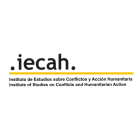WORKING WITH DG ECHO AS AN NGO PARTNER | 2021 - 2027
CASH AND VOUCHERS
It has to be considered as voucher. A voucher has, per its intrinsic nature, a restriction on what can be purchased for it or what it can be exchanged for. Therefore, if a voucher has any kind of restriction, it is and remains a voucher. It has to be considered cash only if it allows to retrieve money from an ATM or if it can be used to purchase whatever and whenever (unlikely).
ATTENTION: Some e-cards have wallets: some restricted (i.e. for food only) and some wallets whose amount can be cashed in an ATM. In this case the partner should differentiate the two types of modalities.
Under the general applicable rules on cost eligibility, the Commission can only pay for a cost when it has been, amongst other criteria, correctly "incurred".
In humanitarian aid actions, provisions exist to determine the moment that a cost has been incurred regarding goods, equipment, services or works used in connection with the Action. However, no guidance or interpretation exists yet to determine when, in the context of Actions involving cash distribution to final beneficiaries, the cash transfer or financial transaction is considered complete, and the cost is therefore deemed 'incurred'.
It is widely established that the fact that a legal commitment has been made (e.g. signature of a legally binding agreement or issuing a purchase order) is not sufficient for the costs to be deemed 'incurred'. Likewise, the fact that an accounting provision has been made (e.g. money has been placed in an account with a view to being distributed) cannot be sufficient to deem those costs as 'incurred'. In the case of humanitarian supplies, DG ECHO's provisions require that the costs should relate to supplies distributed/made available to the beneficiaries during the eligibility period of the Action.
It would seem appropriate to extend this approach also to cash-based distributions with the following context-specific qualification:
a) where the money to be distributed to the final beneficiaries is held in a bank or other equivalent holding mechanism used by mobile phone operators, hawala agents, etc. in the name of one or more humanitarian organisations - the cost shall be deemed incurred when the money has been distributed to the final beneficiary or his/her representative. Money is considered 'distributed' the moment that the beneficiary has access to it. For example, money does not actually need to be withdrawn for costs to be considered as incurred.
It is however good practice to provide a specific timeframe to beneficiaries during which the money may be accessed,
b) where the money to be distributed to the final beneficiaries is deposited directly into a bank or equivalent account in the name of the final beneficiaries or is handed over directly to the beneficiary - the cost shall be deemed incurred at that point.
Partner should be prepared to demonstrate that a cost has been actually incurred, for instance, during DG ECHO audits or verifications. Auditors or Verifiers may ask to visit specific Action locations (distribution points etc.) to verify that the money has been deposited during the eligibility period. During an HQ audit/verification, Commission representatives may check all the supporting documents related to the Action and the relevant dates (including bank accounts and statements).
No, there is no specific place to indicate unallocated cash amount. It is requested to Partners to provide the net amount transferred to final beneficiaries i.e. without the associated costs. As foreseen in the e-Single Form guidelines, the system will automatically calculate the “non-allocated amounts”.
Yes, at final report stage the partner should indicate the net amount actually reimbursed to the suppliers.




